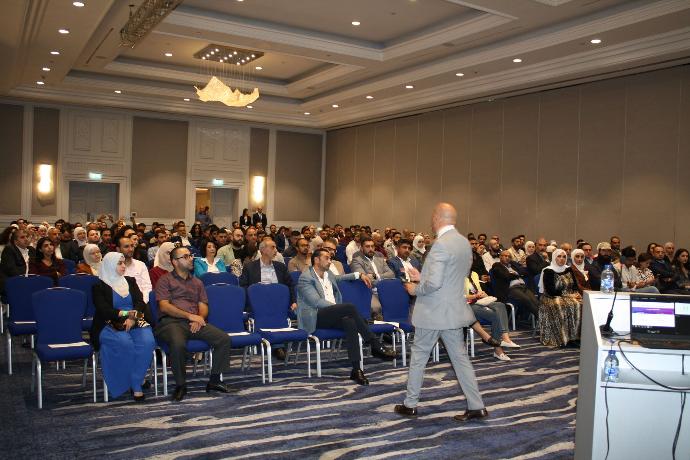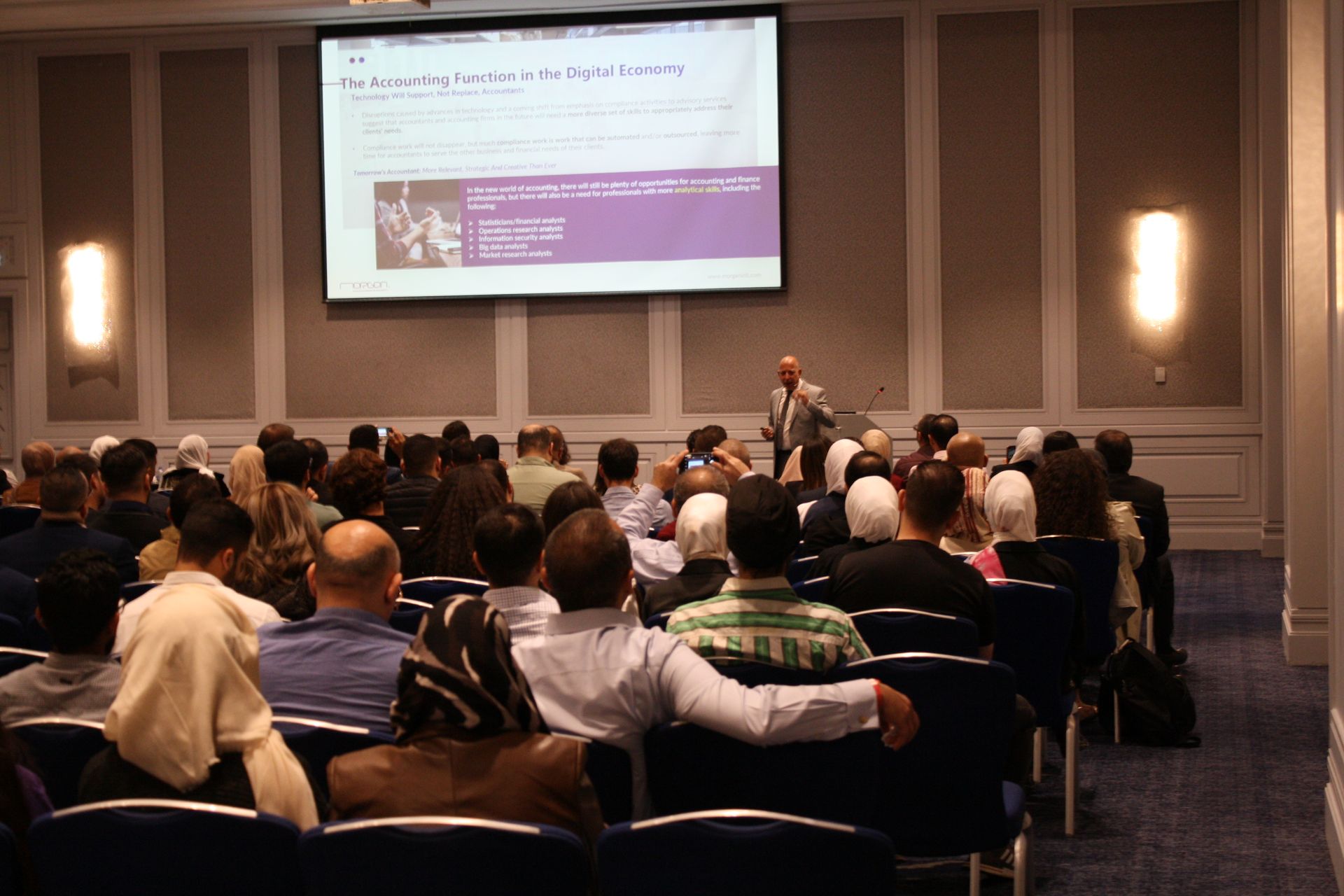Morgan International Unveils Insights and Celebrates Excellence at Amman Live Conference
In a resounding success, Morgan International proudly hosted a groundbreaking business conference at the Grand Hyatt Amman on November 13th, 2023. The event brought together 180 professionals for a three-hour exploration of emerging trends in accounting, finance, marketing, HR, auditing, management, and supply chain.

Dynamic Networking and Learning:
The conference provided a vibrant platform for networking, interactive sessions, and insightful discussions. Attendees, fueled by passion and curiosity, engaged with industry experts, fostering connections and gaining deep insights into the evolving landscape of their respective fields.
Celebrating Achievements:
A pivotal moment in the conference was the recognition of outstanding individuals:
- Mr. Khaled Khraisat: Achieving a perfect score of 100% in the mini contest held at the end of the conference, earning a full scholarship.
- Bayan El Helou: Recognized for her outstanding contributions, awarded a 50% scholarship.
- Osama Abdullah: securing a 25% scholarship on our business program
Conference Highlights
Topic #1: The 4th Industrial Revolution
- Automated functions taking “low skill” jobs
- High capital needed to invest in new technology
- Data privacy concerns
-
- Cybersecurity
- Data mining
- Government-sponsored spying
- Cost saving over time
- Accuracy in data entry and enhanced integration of systems
- Additional security of data, assuming systems are properly secured
- Pivot from non-value-added work to highly-value-added work
The business landscape has undergone a transformative shift in alignment with the latest developments of the 4th Industrial Revolution, with emerging trends revolutionizing the direction in which the business world is heading.
- Blockchain
- Artificial intelligence
- Internet of things
- Cyber security
Topic #2: How will the new digital economy impact the different business fields?
Finance
The Finance industry has experienced significant impact from automation across various functions, encompassing multiple aspects:
Big Data Analytics
Financial Transactions
Automations
Distributed ledger technology
Fintech
Artificial Intelligence
Accounting
Technology will support and now replace accountants. There will still be plenty of opportunities for accounting and finance professionals, but there will also be a need for professionals with more analytical skills, including the following:
Statisticians/
financial analysts
Operations research analysts
Information security analysts
Big data analysts

Supply Chain
The fourth industrial revolution has profoundly influenced the supply chain by introducing various factors that reshape traditional practices.
- Digital supply chain
- Smart manufacturing
- Digital products, services, and business models
- Data analytics and action as a core competency
- Flexible and integrated value chain networks
- Virtualized processes
- Virtualized customer interface
Human Resources
As technology changes the way we work, HR needs to adapt to ensure that employees are happy, engaged and productive. HR will have to shift from a focus on process and compliance to supporting employees. It needs to help companies navigate through the technological changes in the business world. With digital transformation, HR needs to evolve its role from process-focused to employee-focused. HR and AI will become one
Top 5 Growing Jobs
Ai and machine learning specialists
Sustainability
Specialists
Business Intelligence
Analysts
Information Security
Analysts
Fintech
Engineers
Top 5 Declining Jobs
Bank Tellers &
Related Clerks
Postal Service Clerks
Cashiers and Ticket Clerks
Information Data
Entry Clerks
Administrative &
Executive Secretaries
Workforce strategies to bridge the gap (2023-2027)
- Invest in learning & training on the job
- Accelerate the automation of processes
- Transition existing staff from declining to growing roles
- Outsource significant areas of work
- Expand the use of contract work
- Hire significantly more permanent staff
- Reduce the current workforce significantly

